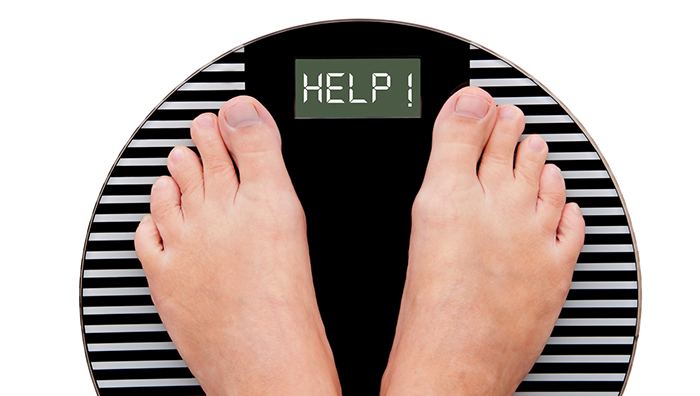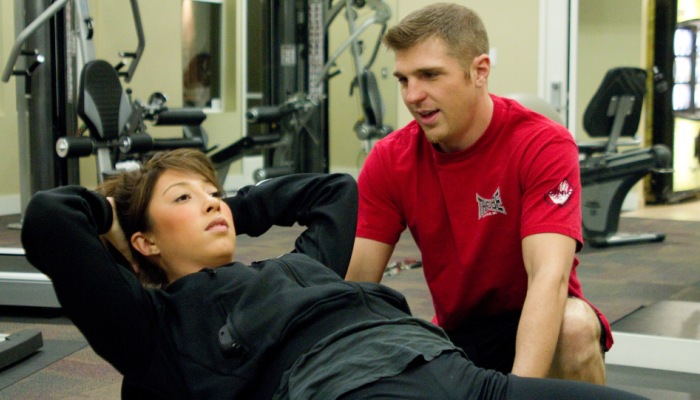
When it comes to weight loss…the process is fairly simple. You need to eat less and move more. (Notice that I didn’t say doing so would be easy only that it was simple.) Countless studies have been done to promote this diet or that one. Eat Mediterranean. No! Paleo. No! Atkins. Wait…no! Vegan….
At the end of the day, however, regardless of which nutrition plan or strategy is employed, what all the results of any given diet indicate is this: as long as the person in question eats less overall in terms of their calorie intake AND exercises more, they will lose weight. That is true regardless of the diet/nutrition plan one chooses. http://www.nejm.org/doi/full/10.1056/NEJMoa0804748
So what is the problem? That seems simple enough!
Well…The really challenging part isn’t actually taking the weight off. It’s KEEPING it off. In fact, many researchers insist that of those who lose weight, upwards of 95 percent of them gain the weight back plus extra. The most recently highlighted example of this was illustrated in May, 2016 when a number of contestants on The Biggest Loser were interviewed several years after their time on the show. All but one had gained a significant amount of their lost weight back. http://www.nytimes.com/2016/05/02/health/biggest-loser-weight-loss.html
If the pharmaceutical industry developed a drug that was 5% effective…they wouldn’t be able to get it in the market. So why should we bother to try and lose weight when doing so has a 95% failure rate? And if my heart is set on losing weight and keeping it off…Does this mean there is no hope?
The answers are nuanced and complex.
First off – there absolutely IS hope. If you want to lose weight (be it because you want to have less pressure on your knees so that you can exercise longer, or because you want to feel more at-home in your own body, or because you recognize that doing so would likely help you achieve a more balanced blood sugar level) you can lose it AND keep it off.
First – It’s important to know what you’re up against.
- When a person loses weight (and by that, I mean more than 5 – 10% of their initial weight) two things happen:
- That individual’s metabolism slows down. It becomes less efficient at burning calories.
- The produces more ghrelin (a hormone associated with hunger).
- The combined effect of this is that the person in question needs to eat less even though they are, on average, hungrier. http://www.nytimes.com/2012/01/01/magazine/tara-parker-pope-fat-trap.html?_r=0
- Once you lose weight, you will need to eat less than someone who is EXACTLY the same size but who never gained weight in the first place. That means if you are 150 pounds (after having lost 50 of those pounds) and your friend is 150 pounds (but she was pretty much always at that weight) YOU will have to eat up to 20 -30% less calories than your friend just to sustain that weight than she will.
Second – you need to know what YOU can do.
- According to the National Weight Loss Control Registry (http://www.nwcr.ws/Research/default.htm) , those who have successfully lost weight AND have kept it off long-term (more than 5 years) did the following:
- 78 Percent of them eat breakfast EVERY DAY
- 75 percent of them weight themselves at least once per week
- 62 percent of them watch less than 10 of television per week
- 90 percent of them exercise at least 60 minutes every day. EVERY. SINGLE. DAY
- In other words (and forgive me if this is sounding trite) But ….YOU NEED TO MAKE A LIFESTYLE CHANGE.
- But here is the thing…making a lifestyle change requires more than will power. Will power is a part of the equation…sure. But we live in a world that is CONSTANTLY telling us to eat. Every day we are inundated with ads, messages, and temptations. There is a Starbucks at every corner. Not a Whole Foods store. Thus, in order to make these changes, you will need a set of skills. A good way to think about this is that it’s not about “will power” it’s about “skill power.” And just what kind of skills should you adopt? According to Sherri Pruitt and Joshua Kaplow in their book “Living Smart” – you can sustain your success if you:
- S – Set a specific Goal. It should be specific, measureable, actionable and observable. For example, don’t say “I will plan on losing a pound per week.” I can’t observe you lose weight. Instead, say “I will make a plan to exercise 20 minutes for three days out of the week this week. It’s specific, I can measure the time you’re taking, it’s an action you can directly apply, and I can observe you do it.
- M- Monitor your progress. If you want to lose weight, you’re going to have to keep track of how you’re doing. Weight yourself every day, and take an average at the end of the week. Think this will make you feel too neurotic about your weight? Nope. The more often you weigh yourself, the more likely you are to treat it just as “data.” http://www.usatoday.com/story/life/2016/01/03/weight-loss-scales-daily/77584478/
- A – Arrange your environment for success. If you want to exercise every day, that’s going to be hard if your shoes are buried in the back of your closet in some as-of-yet-undetermined location. Get your workout clothes out and ready to go.
- R – Recruit support. If your friends gain weight, you are 57% more likely to gain weight as well. If your friends lose weight? Same thing. http://www.npr.org/templates/story/story.php?storyId=12237644 This is because our relationships have a powerful influence on us. You may be able to make drastic changes in your life…but you can’t sustain those changes unless you have support.
- T – Treat yourself (but not with food). In Charles Duhigg’s book “the Power of Habit” was able to illustrate beautifully is that habits are much easier to form when you have a reward system. So if you set a goal to exercise every day for 20 minutes…how can you reward yourself afterward? A pat on the back? Some time on an app you love? A call with a friend? A sticker on your calendar? Whatever the case, you want to have something built in that makes you feel like your actions reap a benefit.
Conclusion: Losing weight is hard. KEEPING it off is even harder. That’s the bad news. The good news is that it is NOT impossible. Many people are successful in keeping the weight off. It’s just important to know what is required, and to have compassion for yourself when you start to feel overwhelmed. In order to stay healthy it’s MUCH more important to be “fit” (have energy, have a habit of exercise, eat fruits and vegetables)…than it is to be “thin.” And it’s entirely possible to be healthy at just about any size. http://www.npr.org/templates/story/story.php?storyId=128267723. Even so, if you’re determined to lose weight, just remember… yes it’s hard work, but it can be done. You just should never have to do it alone!
(Want someone to help hold you accountable to your weight loss goals? Chat with a GOQii Coach!)





